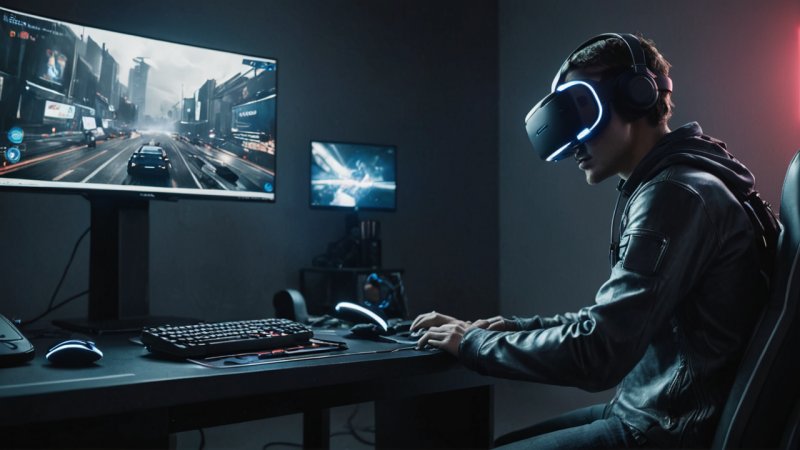Virtual reality (VR) is reshaping the landscape of modern gaming, offering players an unprecedented level of immersion and engagement. With its ability to transport users into a digital realm, VR is not just a trend; it’s a transformative technology that is redefining how we play and interact with games. This article delves into the impact of VR on gaming experiences and what it means for the future of entertainment.
At its heart, VR gaming offers a unique blend of realism and escapism. Unlike traditional gaming platforms, where players view the game from a fixed perspective, VR immerses them in a 3D environment that they can explore by moving their heads and bodies. This level of interactivity enhances the emotional connection to the game, allowing players to feel as though they are truly part of the story.
The technology behind VR gaming has evolved significantly over the past few years. High-quality VR headsets are now equipped with advanced sensors that track head movements with precision, creating a seamless experience. Additionally, motion controllers enable players to physically interact with the game world, whether it's aiming a weapon, solving puzzles, or crafting items. This hands-on approach adds a layer of depth to gameplay that traditional gaming methods cannot match.
One notable aspect of VR's impact on gaming is its ability to encourage physical activity. Many VR games require players to stand, move, and even dance, turning gaming sessions into an active experience. Titles such as Beat Saber and Superhot VR not only provide entertainment but also serve as a workout, appealing to health-conscious gamers looking for an engaging way to stay fit.
The storytelling potential of VR is also significant. Developers are exploring innovative narrative techniques that leverage the immersive nature of VR. Players can experience stories from multiple perspectives, interact with characters, and make decisions that influence the plot. This level of engagement can lead to more meaningful gaming experiences, as players become emotionally invested in the outcomes of their choices.
Moreover, the social aspect of VR gaming is gaining momentum. Many VR platforms offer multiplayer modes that allow friends to join in on the action, regardless of their physical location. Whether exploring a virtual world together or competing in friendly matches, these social experiences foster a sense of community and connection among players.
As VR technology continues to improve, we can expect even more exciting developments in the gaming sector. Innovations such as eye tracking, improved graphics, and enhanced haptic feedback will further elevate the gaming experience, making it more realistic and engaging.
In addition, the integration of VR with other technologies, like augmented reality (AR) and artificial intelligence (AI), could lead to groundbreaking gaming experiences that blur the lines between the virtual and physical worlds. Imagine a game that uses AR to create challenges in your living room while you navigate through a virtual landscape—this is the future of gaming.
In conclusion, virtual reality is making a profound impact on modern gaming experiences by providing immersive, engaging, and physically active gameplay. As technology continues to advance and more developers embrace VR, the potential for innovation in the gaming industry is limitless. Whether you’re a die-hard gamer or just starting, VR is an exciting frontier that promises to redefine how we interact with games and each other.
The Impact of VR on Modern Gaming Experiences
Explore how virtual reality (VR) is transforming modern gaming, enhancing immersion and engagement for players.






